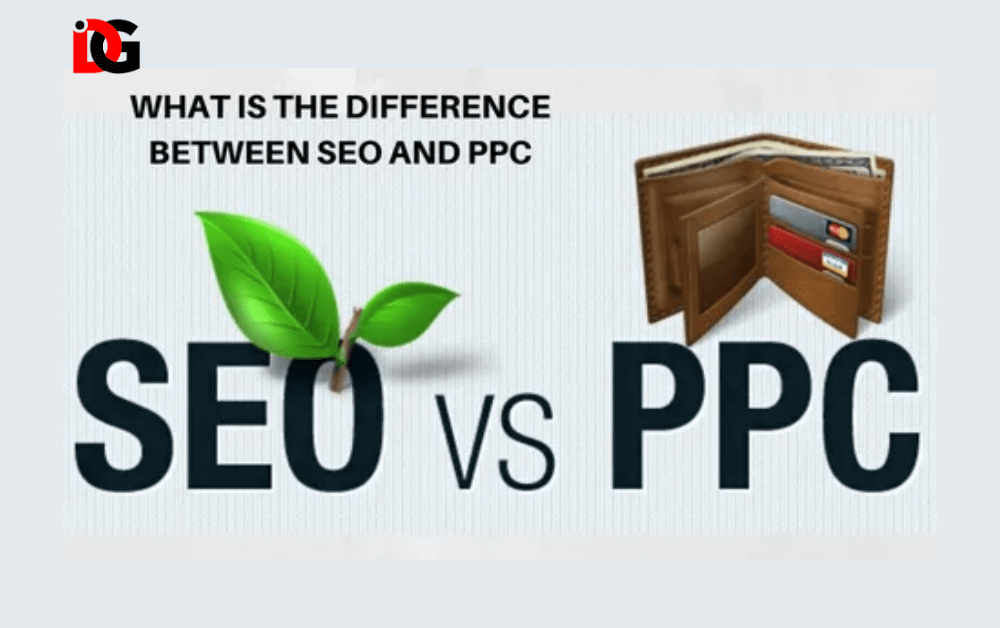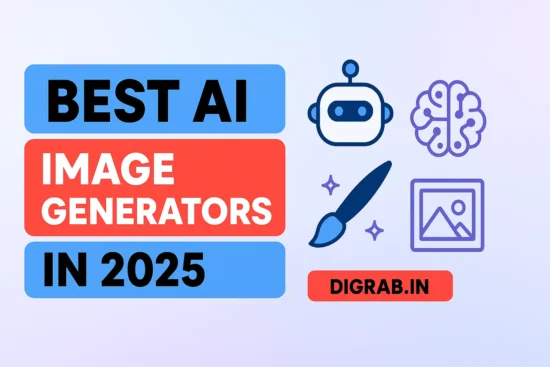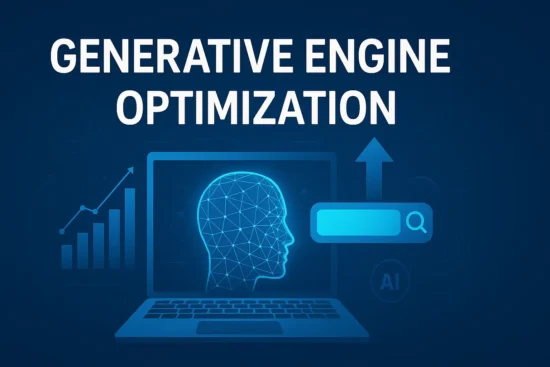
In the digital landscape, businesses are constantly seeking ways to gain a competitive edge and attract more customers online. Among the various strategies available, Search Engine Optimization (SEO) and Pay-Per-Click (PPC) advertising are two of the most popular methods used to increase website traffic and enhance online visibility. While both approaches aim to achieve the same goal—driving more visitors to your site—they do so in very different ways. Deciding which strategy is best for your business can be challenging. In this blog, we’ll break down the key differences between SEO and PPC, weigh their pros and cons, and help you determine which option aligns best with your business goals and budget.
Understanding SEO and PPC
Before we dive into the comparison, it’s important to understand what SEO and PPC are.
What is SEO?
Search Engine Optimization, or SEO, refers to the process of improving a website’s visibility on search engines like Google, Bing, or Yahoo. The goal is to increase the organic (non-paid) traffic to your website by optimizing various elements of your site, such as content, keywords, meta tags, and backlinks.
SEO focuses on improving the ranking of a website on search engine results pages (SERPs). The higher a website ranks, the more likely it is to attract visitors. SEO involves strategies like:
- Keyword research: Finding the right keywords that people use to search for products or services similar to yours.
- On-page SEO: Optimizing your website’s content, structure, and design to make it more user-friendly and search engine-friendly.
- Off-page SEO: Building backlinks from other reputable websites to improve your site’s authority and trustworthiness.
- Technical SEO: Ensuring that your website loads quickly, is mobile-friendly, and is easy for search engine crawlers to navigate.
What is PPC?
Pay-Per-Click (PPC) is a form of online advertising where businesses pay a fee each time their ad is clicked. PPC ads appear on search engine results pages, social media platforms, and other websites. The most popular form of PPC is Google Ads, where businesses bid on keywords to have their ads displayed on the search engine results page (SERP).
Unlike SEO, which focuses on organic traffic, PPC allows businesses to pay for instant visibility. With PPC, businesses can control the amount they spend and target specific audiences based on factors like location, age, and interests. Some key elements of PPC include:
- Keyword bidding: Choosing the right keywords to bid on for your ads.
- Ad creation: Crafting effective and engaging ads that appeal to your target audience.
- Landing page optimization: Ensuring that the page your ad links to is relevant and optimized for conversions.
- Budget management: Setting a daily or monthly budget for how much you are willing to spend on ads.

SEO Vs. PPC: Key Differences
Now that we understand what SEO and PPC are, let’s compare the two strategies. There are several factors to consider when deciding which one is best for your business.
Cost
SEO: One of the biggest advantages of SEO is that it’s free. While there may be some costs associated with hiring an SEO professional or purchasing tools for keyword research, the organic traffic that comes from SEO doesn’t require ongoing payments. SEO is a long-term investment, and it takes time to see results.
PPC: With PPC, you pay for every click on your ad. The cost of PPC depends on the competitiveness of the keywords you are targeting. Popular keywords can be expensive, and if you are in a competitive industry, you may have to spend a significant amount to get good results. However, PPC provides instant results, making it an attractive option for businesses looking for immediate traffic.
Time
SEO: SEO is a long-term strategy that takes time to show results. It can take months to see significant improvements in your search engine ranking. The time it takes to see results depends on several factors, including the competitiveness of your industry, the quality of your content, and how well you optimize your website.
PPC: PPC provides immediate results. Once your ad is live, it can start generating traffic to your website right away. This makes PPC a great option if you need quick results or if you have a time-sensitive promotion or product launch.
Results
SEO: SEO provides long-lasting results. Once you achieve a high ranking on search engines, you can maintain that position for a long time with ongoing optimization efforts. SEO helps build trust and credibility over time, as users tend to trust organic search results more than paid ads.
PPC: The results from PPC are short-term. Once you stop paying for ads, your traffic will drop immediately. However, PPC allows for more control over your targeting and budget. You can adjust your campaigns in real-time based on performance, which is an advantage if you need to make quick changes.
Traffic Quality
SEO: SEO brings in high-quality traffic. People who find your website through organic search are usually actively looking for the products or services you offer. SEO helps attract users who are more likely to convert into customers because they have already shown interest in your niche.
PPC: PPC can bring in high-quality traffic, but it depends on how well your ads are targeted. If your ads are well-crafted and relevant to your audience, PPC can be highly effective in attracting the right customers. However, if your ads are not targeted properly, you may attract clicks from people who aren’t interested in what you have to offer, which can lead to wasted ad spend.
Advantages of SEO
Let’s look at some of the key advantages of SEO.
Sustainable Traffic
One of the biggest benefits of SEO is that it provides sustainable, long-term traffic. Once you achieve high rankings for your target keywords, you can continue to receive traffic from search engines without having to pay for each click. This makes SEO a great strategy for businesses looking to build a steady flow of organic traffic over time.
Builds Trust and Credibility
People trust organic search results more than paid ads. A high-ranking website in the search results is often seen as more credible and trustworthy. SEO helps build authority and trust in your brand, which can lead to better customer relationships and long-term success.
Cost-Effective
Although SEO requires an investment of time and resources, it’s generally more cost-effective than PPC in the long run. Once you achieve a good ranking, the ongoing costs to maintain that position are relatively low compared to the continuous payments required for PPC ads.
Advantages of PPC
While SEO offers several advantages, PPC also has its own set of benefits.
Instant Results
PPC provides instant traffic, making it ideal for businesses that need immediate results. If you are running a time-sensitive promotion or product launch, PPC can help you get the word out quickly and drive traffic to your website in no time.
Targeting Control
PPC allows you to have more control over your targeting. You can select specific keywords, demographics, locations, and even devices to target your ads to the right audience. This makes it easier to reach potential customers who are more likely to convert.
Budget Flexibility
With PPC, you have complete control over your budget. You can set a daily or monthly budget and adjust your spending as needed. If a campaign is performing well, you can increase your budget to get more traffic. If a campaign is not performing well, you can pause it to avoid wasting money.
Which Strategy Is Best for Your Business?
Now that we’ve looked at the key differences, advantages, and disadvantages of SEO and PPC, let’s consider which strategy is best for your business.
When to Use SEO
SEO is ideal for businesses that are looking for long-term, sustainable growth. If you have the time and resources to invest in building a strong online presence and optimizing your website, SEO is a great strategy. It’s particularly useful for businesses that want to build trust and authority in their industry and attract high-quality organic traffic.
When to Use PPC
PPC is best for businesses that need immediate results or have a specific goal, such as promoting a time-sensitive offer or driving traffic to a new product page. PPC is also a good option if you want to test new keywords or reach a specific target audience quickly. If you have the budget to spend on ads and need short-term visibility, PPC is a great strategy.
Combining SEO and PPC
In many cases, businesses can benefit from using both SEO and PPC strategies. By combining SEO and PPC, you can target your audience at different stages of the buying cycle. For example, PPC can help drive immediate traffic to your website, while SEO can help build long-term authority and bring in organic traffic. Using both strategies together can provide a well-rounded approach to digital marketing and help you achieve both short-term and long-term success.
Conclusion
Both SEO and PPC are powerful strategies that can help businesses drive traffic to their websites and improve their online presence. The choice between SEO and PPC depends on your business goals, budget, and timeline. If you’re looking for long-term, sustainable growth, SEO is the way to go. If you need quick, targeted traffic, PPC can provide immediate results. In many cases, combining both strategies can give you the best of both worlds.
Ultimately, the best strategy for your business will depend on your unique needs, goals, and resources. Take the time to evaluate your options and choose the strategy that aligns with your business objectives. Whether you choose SEO, PPC, or a combination of both, the key is to create a well-rounded digital marketing strategy that helps you reach your target audience and achieve your business goals.
If you want to read more blogs like this, visit our website for expert strategies and tips!




Leave a Reply